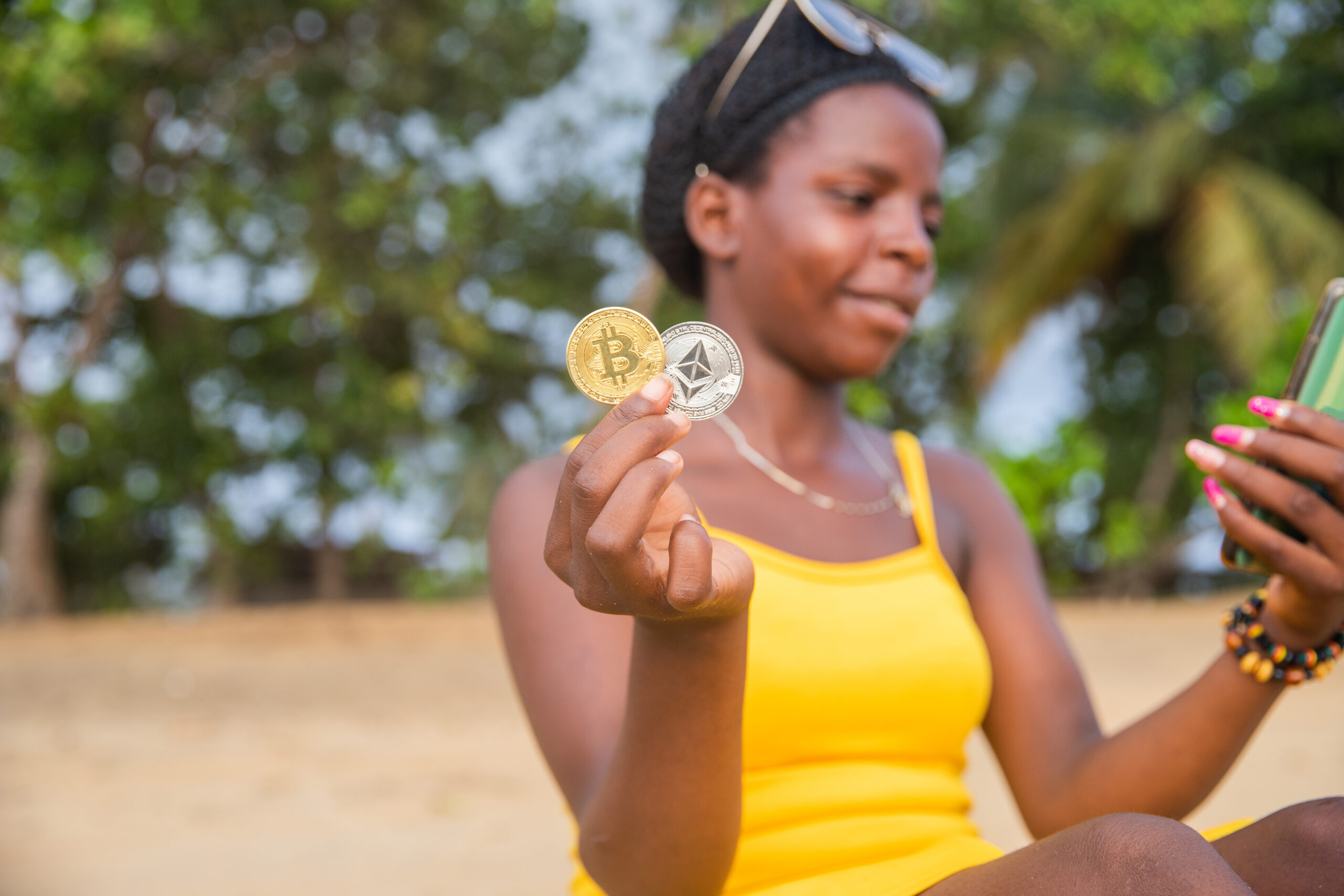How Young Nigerians Are Cashing In on Cryptocurrency Millions

Introduction

Image showing Nigeria’s crypto adoption boom — rising from about 1.2 million users in 2018 to over 23 million by 2025.
Every day, in towns, cities , states all over the country, you will spot young Nigerians, scrolling on phones, reading off crypto charts, or debating in WhatsApp groups, twitter (X), taking classes on the next surging coin. Some are turning ₦50,000 into ₦5 million and some others, losing their monies too. Groups quietly building small crypto portfolios that bring steady extra income also exist.
In 2025, crypto in Nigeria is no longer a vague concept, it’s now a viable hustle. But cryptocurrency is also risky, tricky, and regulated — sometimes in tough ways.
This article shows how people are making money through crypto in Nigeria, the new laws that govern cryptocurrency , real examples, and how you one can play smart.
Crypto Adoption in Nigeria
“Nigeria’s Crypto Adoption Surge (2018–2025)”
Data points:
- 2018 → ~1.2 million users
- 2020 → ~4.5 million users
- 2022 → ~10.3 million users
- 2025 → ~23.5 million users
After the 2020-2022 naira devaluation, the cryptocurrency growth in Nigeria exploded. This meant deeper markets, more projects and more opportunities.
How Young Nigerians Are Actually Making Crypto Money
1. Trading volatile pairs (speculation)
Buy coins at low amounts, sell when the coin value goes high. One can target small-cap coins or ride strong tokens like BTC, ETH, or BNB. This is quite high risk and many might lose if they do not exit on time.
- Example: A 24-year-old converted ₦200,000 to USDT and traded SOL back and forth with supervision from a mentor and ended with ₦2.22 million in 8 months.
2. Staking / Yield Farming / Liquidity Provision
This is like an investment strategy where interests are earned by locking cryptocurencies for a while. It can double as a passive income. It is quite a risk to and could result in impermanent loss.
- Example: Someone stacked Cardano staking rewards, or provided liquidity on a decentralized exchange to earn fees.
3. Holding “blue chips” as store of value
Some people just buy Bitcoin or Ethereum and hold (HODL) while expecting long-term price growth. This is a hedge to Nigeria’s inflation.
“David, a 25-year-old in Lagos, started with ₦50,000 in 2020. By buying low and selling high, he now earns over ₦500,000 monthly through Binance and KuCoin”
4. Mining
This is less common now in 2025, but was a hot trend a few years ago . It requires a lot of time and can be quite unprofitable when done on a small scale.
5. NFTs, Play-to-Earn, Web3 projects
This has been a growing sector especially on platforms like X (formerly Twitter). There, young creators launch NFT art, P2E games or token communities.
- Example: A Lagos-based visual-virtual artist sold NFTs of digital portraits. The first drop raised $3,000 equivalent.
- Challenge: exposure, gas fees, and finding buyers.
6. Crypto arbitrage across exchanges / countries
Because exchanges or P2P platforms price the same crypto differently (due to naira rates or fees), users arbitrage.
- Example: Buy BTC cheaply on a global platform, then sell via local P2P at a premium.
2025 Regulatory Landscape: What Rules Are Now in Play
Crypto in Nigeria has always tettered into gray zones and blurred lines . Here are 2025 updates worth reading through.
| Regulation / Policy | What Changed / Proposed in 2025 | Pros (What It Helps) | Cons / Risks |
| CBN’s crypto ban (legacy) | The 2017 directive banning banks from servicing crypto platforms still lingers in enforcement but is being revisited. | It helps financial system oversight. | It pushes trading underground. |
| Securities & Exchange Commission (SEC Nigeria) new guidelines | 2025 proposals classify certain tokens as securities, bringing them under SEC oversight. | More protection, standards for crypto startups. | Some projects may get shut down, compliance costs rise. |
| Digital Assets Tax / Finance Act 2025 | Talk in policy circles about taxing crypto gains more clearly. | Government revenue, clearer guidance. | Could deter small investors or push activity private. |
| Anti-money laundering (AML) & KYC rules | Exchanges must report large trades, suspicious flows. | Helps legitimize the ecosystem. | Privacy tradeoff, some users may exit or use peer methods. |
| CBN-approved stablecoin framework (proposed) | A regulated stablecoin tied to naira is under discussion. | Safer, more stable on-chain naira alternatives. | May crowd out existing private stablecoins, require compliance. |
These shifts are at an early stage. For crypto investors in Nigeria in 2025, regulatory awareness is as important as price charts.
Real Examples
Blessing from Aba pooled together ₦100,000 with four friends to buy altcoins. After 9 months, they turned it into ₦1.2 million, then sold it and diversified. Almost the same time, Tunde in Kano bought ETH early, held it through naira stress, and sold when local rates peaked, but Chika bought a new token from a Nigerian Telegram group. It pumped for a day and dumped leading him to lose 70% of his capital.
Crypto stories like these cause fear because they feel close and could be they could be yours or your neighbor’s.
The Risks You Must Know:
- Scams and rug pulls: Nigerian telegram, whatsapp crypto groups are full of “guaranteed 10× returns” promises. Many vanish overnight. If it sounds too good to be true, it might be.
- Volatility: Prices can swing 10–30 % in a day.
- Regulation risk: A sudden policy, crackdown, or CBN memo can freeze your funds or limit access.
- On/off ramp issues: Converting between naira and crypto is friction-laden under existing banking rules.
- Security lapses: This can cause you to lose private keys, phishing, bad smart contracts.
How to Play Smart
- Don’t bet your rent money. Don’t put anything you cannot loser.
- Use trusted platforms
- Stick to blue chips first
BTC, ETH, BNB. Later, experiment with other coins when you understand risk. - Never all-in one coin or one strategy- Mix holding, staking, maybe some yield farming.
- Follow regulation news – SEC Nigeria, CBN pronouncements, Finance Act updates. Prepare your mind to adapt.
- Withdraw profits smartly- try to move your gains to safer assets. Don’t leave everything in crypto forever.
- Don’t leave money in an exchange wallet you don’t have control over.
Final Thoughts: Crypto Is a Tool, Not a Magic Pill
Crypto is a tool, not a magical pill or a get rich quick scheme. ŸøÜñG Nigerians are proving with evidence that crypto is not just the hype, but can be a tool for wealth generation if you have the discipline, time and constant learning.
If you treat crypto like lottery tickets, you’ll end up crying over losses. If you treat it like early-investment capital — study, protect, diversify — you may
build something meaningful.
Scams have the highest risks and sometimes the highest reward.
Kindly let us know in the comments if you’ve been been involved in crypto and your experiences.




















